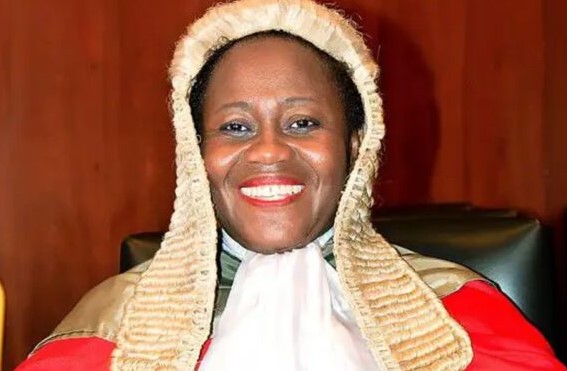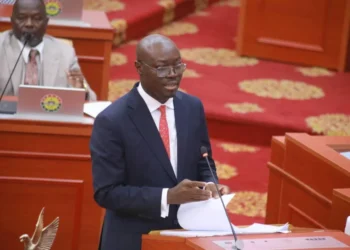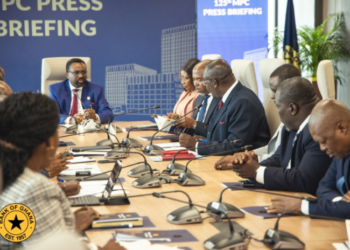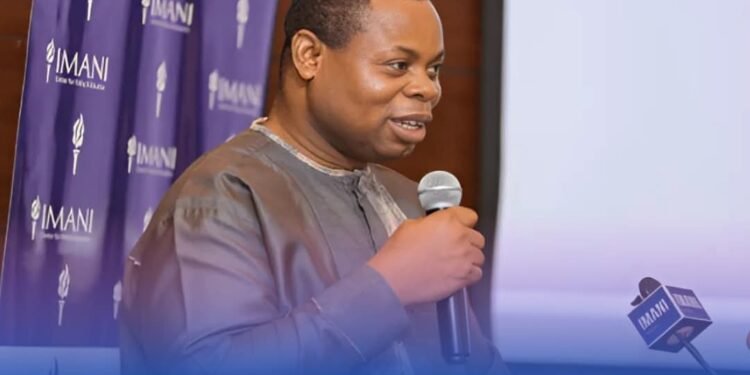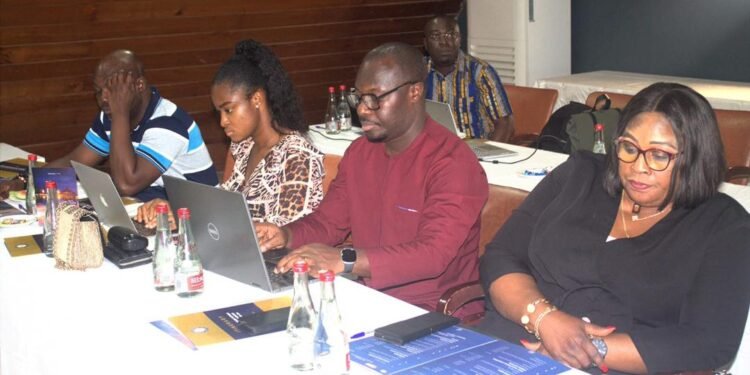The Supreme Court of Ghana has dismissed an application filed by a Member of Parliament for Old Tafo and New Patriotic Party (NPP) legislator, Hon. Ekow Vincent Assafuah, challenging the President’s suspension of Chief Justice Gertrude Araba Esaaba Sackey Torkornoo.
The court, by a 3-2 majority ruling, held that there was no legal basis to overturn the President’s decision, effectively putting to rest a constitutional showdown over the authority to temporarily suspend the nation’s top judicial officer.
The court’s ruling was delivered by a new panel constituted and presided over by acting Chief Justice Paul Baffoe-Bonnie.
The panel also included Justices Henrietta Mensah Bonsu, Yonny Kulendi, Amadu Tanko, and Ernest Gaewu.
The majority opinion, authored and supported by Justices Baffoe-Bonnie, Yoonny Kulendi, and Tanko, affirmed the legality and procedural soundness of the President’s suspension directive.
Justice Mensah Bonsu and Ernest Gaewu dissented, arguing that the President’s action raised constitutional questions that required deeper judicial scrutiny.
Hon. Ekow Assafuah had approached the court with an injunction application, seeking to reverse the suspension of Chief Justice Torkornoo by President John Dramani Mahama following the Council of State’s determination of a prima facie in three petitions seeking the removal of the Chief Justice.

His central argument rested on the claim that the President’s move was unconstitutional, arbitrary, and potentially threatened the independence of the judiciary.
However, the majority of the Supreme Court panel disagreed, stating that the President’s action did not violate the constitutional framework guiding judicial discipline and administration.
Panel’s Reconstitution
The legal battle took a further twist with the reconstitution of the original Supreme Court panel that was to hear the case.
The new panel, led by Justice Baffoe-Bonnie, was formed amid rising tensions over the appearance of judicial interference and executive overreach.

The reshuffling of the bench drew criticism from the Old Tafo MP’s counsel and the former Attorney General, Godfred Yeboah Dame, who raised strong objections to the legitimacy of the newly constituted panel.
He argued that the move undermined judicial stability and created a perception of bias.
However, Godfred Dame’s objections were unanimously dismissed by the court, with the new panel asserting its lawful mandate to adjudicate the case.
According to the panel, the judiciary remains empowered to reorganise its composition in accordance with its internal procedures, particularly when circumstances such as recusal, conflict of interest, or institutional exigency demand such changes.
The dismissal of Hon. Assafuah’s suit is likely to have wide-ranging political and institutional implications.
One is that, while staying within the bounds of the 1992 Constitution, it strengthens the president’s power in cases involving temporary disciplinary action against judges.
Second, the decision highlights contrasting judicial philosophies on the balance of power between the executive and the judiciary, highlighting a possible ideological divide within the Supreme Court itself as demonstrated by the unusual 3-2 split.

Although the decision has clarified the process, it also raises more serious concerns about how the executive and judicial branches should develop together, especially in a nation with highly politicized and polarized politics.
Given the dissenting opinions of Justices Kulendi and Gaewu, it is unclear how this decision will affect public confidence in the legal system.
Despite being in the minority, their views will probably be cited in discussions about judicial independence and constitutional interpretation in the future.
As of now, the President’s action is judicially affirmed, and Chief Justice Torkornoo’s suspension is still in place.
READ ALSO: Government Considers ‘Multiple Lease Model’ for ECG’s Privatization

